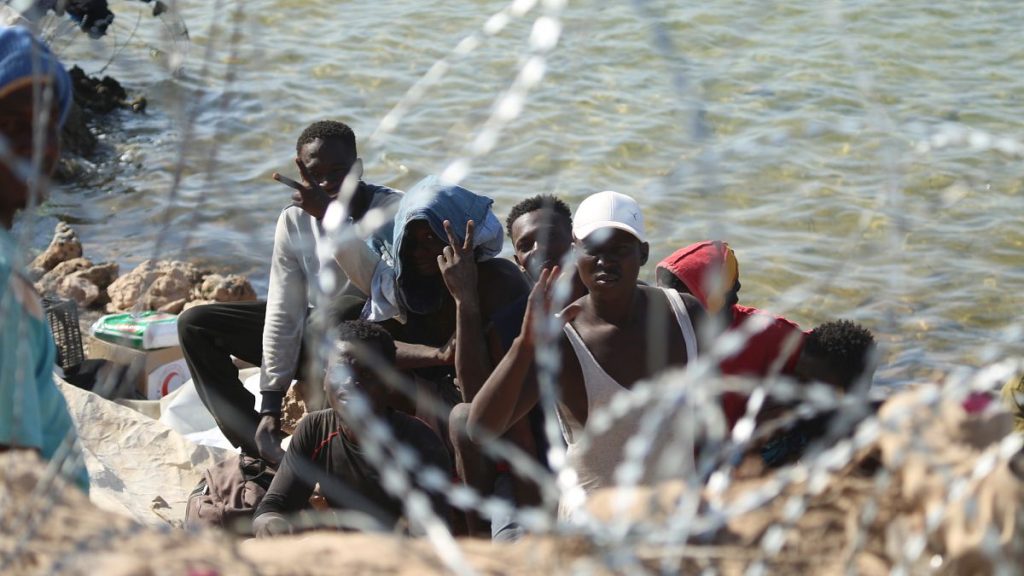In a significant development in Libya, authorities have ordered the suspension of operations for ten international aid organizations, citing violations of local laws pertaining to assistance for African migrants. The decision was announced by the Internal Security Agency (ISA), which claimed that these groups are aiding migrants seeking resettlement and that their activities pose a threat to the nation’s demographic stability. The affected organizations, which previously provided relief efforts, particularly during the catastrophic floods of 2023, now face legal repercussions and are required to close their offices in Libya.
| Article Subheadings |
|---|
| 1) Order for Aid Suspension |
| 2) Allegations against Aid Organizations |
| 3) Background on the Migrant Crisis in Libya |
| 4) Response from Affected Organizations |
| 5) The Broader Implications for Migrants |
Order for Aid Suspension
Libyan authorities, specifically the Internal Security Agency (ISA), have mandated a suspension of operations for ten international aid organizations. This unprecedented order underscores the government’s stance on managing the migrant situation within its borders. The directive was issued to organizations that are said to be providing aid that facilitates the resettlement of African migrants. The ISA characterized the ongoing operations of these groups as a “hostile activity” toward Libyan demographics and declared that strict legal measures would follow the suspension of their operations.
Allegations against Aid Organizations
The ISA’s accusations encompass a broad range of allegations, including suspicions of money laundering and lack of transparency in financial dealings. Officials claim that these organizations provided a variety of assistance — ranging from cash vouchers to medical aid — without appropriate oversight. According to ISA spokesperson Salem Ghaith, these actions violate local laws and exacerbate the issues surrounding immigration in Libya. Ghaith emphasized that the aid provided has transformed Libya into a destination for migrants rather than a transit point en route to Europe. This assertion is supported by the statement that once migrants receive assistance, they no longer feel the need to risk their lives at sea attempting to reach European shores.
Background on the Migrant Crisis in Libya
Libya, sharing borders with six countries and having a long Mediterranean coastline, has emerged as a critical transit route for migrants fleeing conflict and economic hardship in Africa and the Middle East. The country has been in turmoil since the 2011 NATO intervention that ousted long-standing dictator Muammar Gaddafi, leading to a protracted struggle for power between rival factions. These chaotic conditions have resulted in the establishment of a vast network of migration, with the International Organization for Migration estimating that approximately 787,000 migrants and refugees resided in Libya by early 2024. Amidst this backdrop, reports of violence, exploitation, and abuse of migrants in detention centers have raised significant human rights concerns.
Response from Affected Organizations
The ten affected aid organizations include well-known groups such as Doctors Without Borders (MSF), the Norwegian Refugee Council, and the Danish Refugee Council, among others. These organizations had been instrumental in providing critical relief during the disastrous floods that swept through Libya in 2023, which resulted in thousands of fatalities. Following the suspension order, MSF issued statements highlighting the dire conditions faced by migrants in Libya. They noted that many experience violence and systemic denial of healthcare, emphasizing that the humanitarian situation for migrants is sharply worsening. The organizations are now faced with the challenge of navigating these accusations while grappling with the immediate implications of having to close their offices.
The Broader Implications for Migrants
The ramifications of these developments extend far beyond the affected aid organizations. With the suspension of humanitarian aid, the already precarious situation for migrants in Libya is expected to deteriorate further. As these individuals face heightened risks of violence and exploitation, their access to basic necessities such as food, shelter, and medical care becomes increasingly compromised. Reports have shown that migrants are often subjected to varied forms of abuse, including trafficking and extortion. As the international community watches these developments closely, the question of how to address the growing humanitarian crisis in Libya and the broader region remains urgent.
| No. | Key Points |
|---|---|
| 1 | Libyan authorities have suspended operations of ten international aid organizations for alleged violations of local laws. |
| 2 | The Internal Security Agency claims the aid groups are facilitating the resettlement of African migrants in Libya. |
| 3 | Allegations against these organizations include suspicions of money laundering and lack of transparency in their activities. |
| 4 | The ongoing migrant crisis in Libya highlights urgent humanitarian and human rights challenges. |
| 5 | The closure of aid offices raises concerns about the welfare and safety of migrants within the country. |
Summary
In summary, the recent suspension of operations by ten international aid organizations in Libya reflects the complex interplay between local laws and humanitarian needs in a country grappling with a severe migrant crisis. As the Internal Security Agency pursues legal actions against these NGOs, the situation for thousands of migrants remains precarious. The repercussions of this order not only impact the humanitarian landscape in Libya but also underline the urgent need for comprehensive solutions to address the underlying issues of migration and human rights violations within the region.
Frequently Asked Questions
Question: Why have Libyan authorities suspended the operations of international aid organizations?
Libyan authorities cited allegations that these organizations violated local laws by providing assistance that facilitates the resettlement of African migrants, undermining national demographics.
Question: What types of aid were organizations providing to migrants?
Organizations were accused of providing various forms of assistance, including cash vouchers, medical aid, food supplies, and clothing, all of which were intended to support migrants in Libya.
Question: What challenges do migrants face in Libya?
Migrants in Libya often face extreme hardships, including violence, exploitation, and lack of access to essential services like healthcare, amplifying concerns regarding their safety and well-being.


